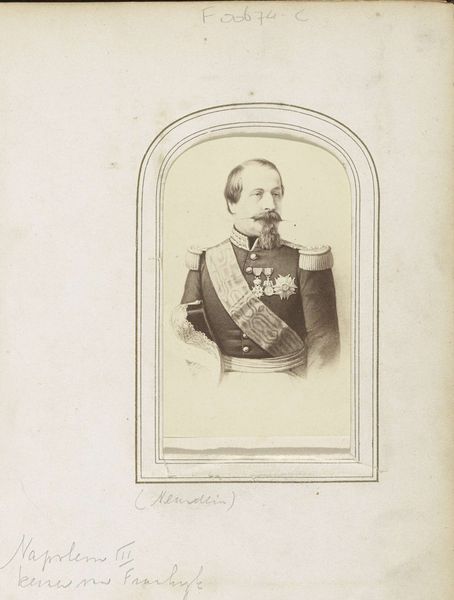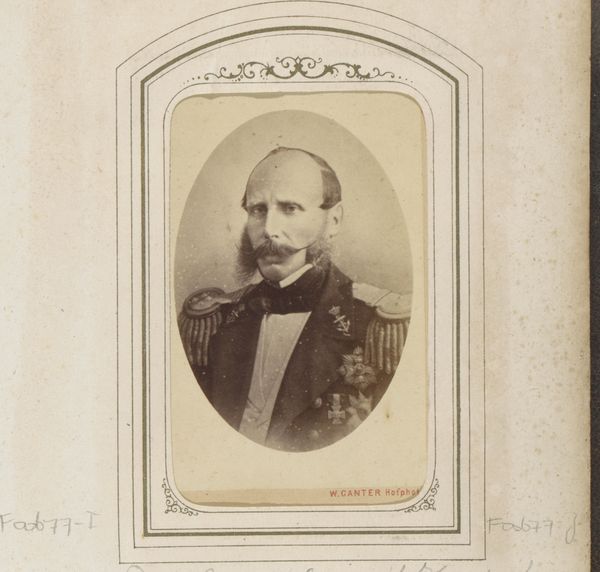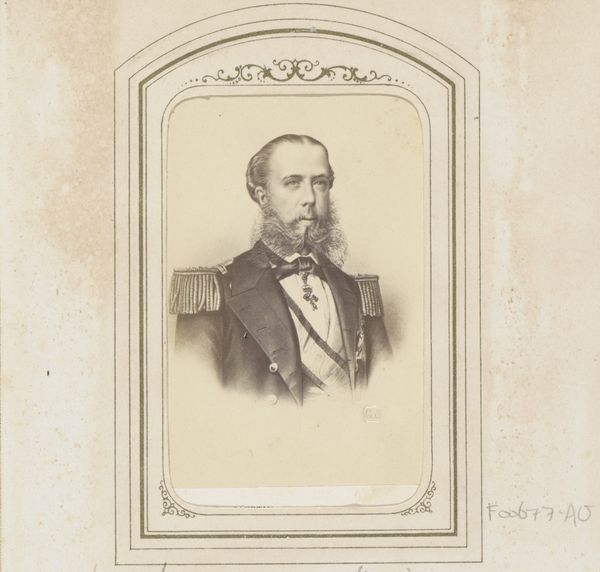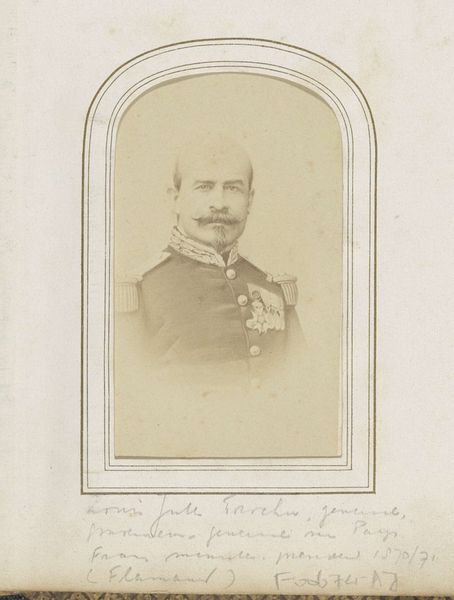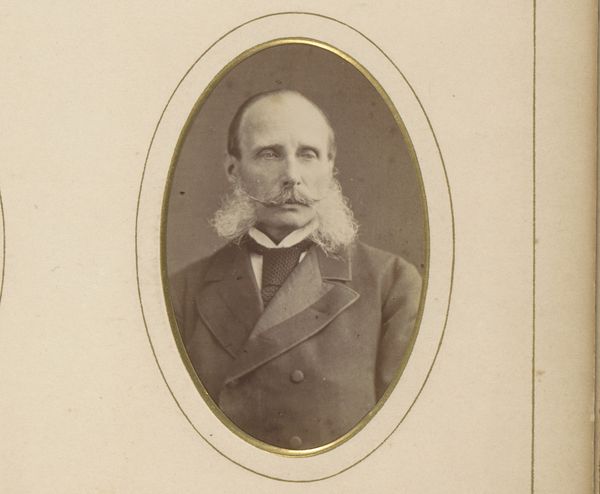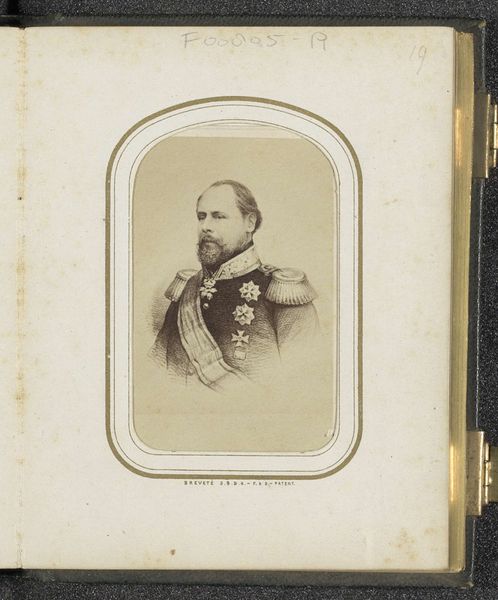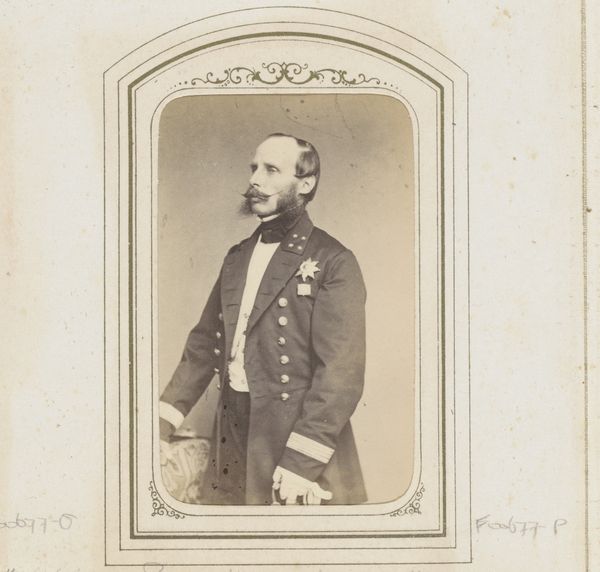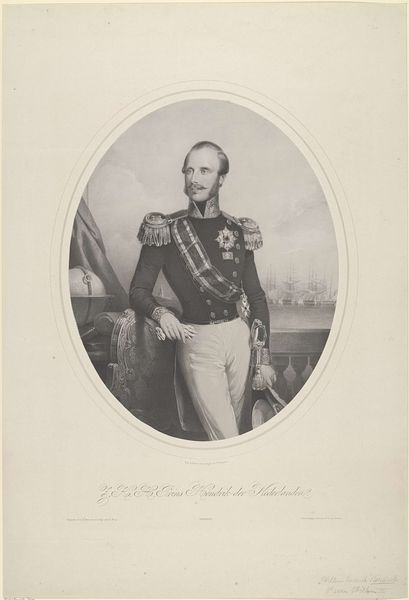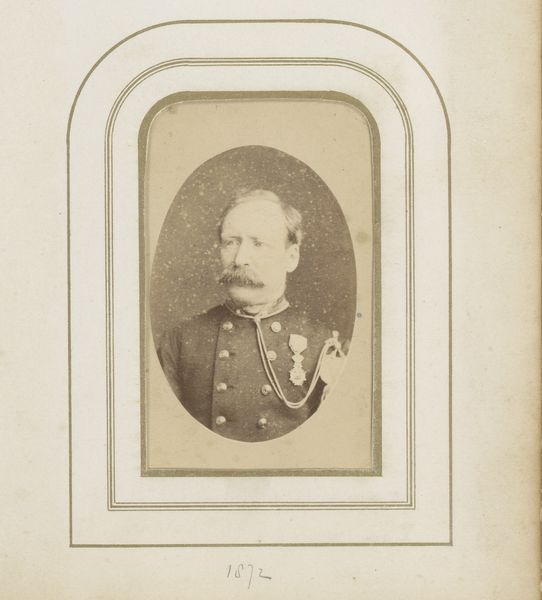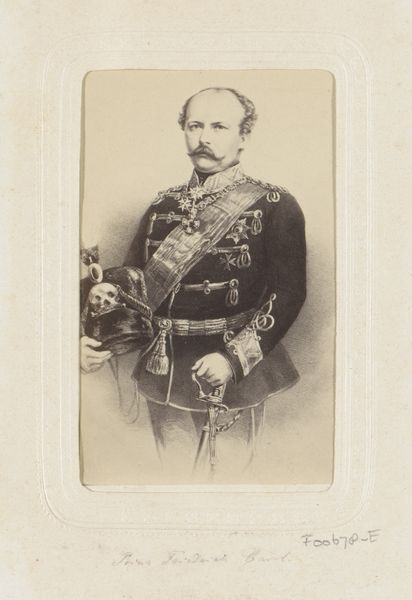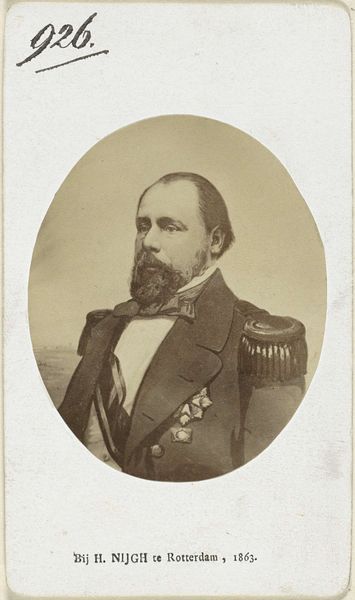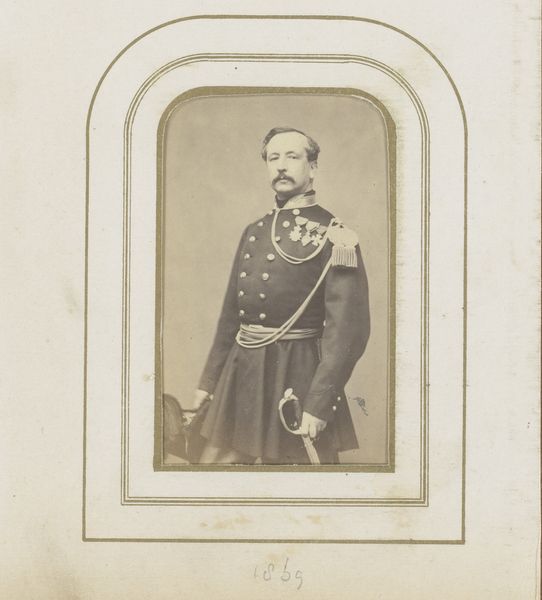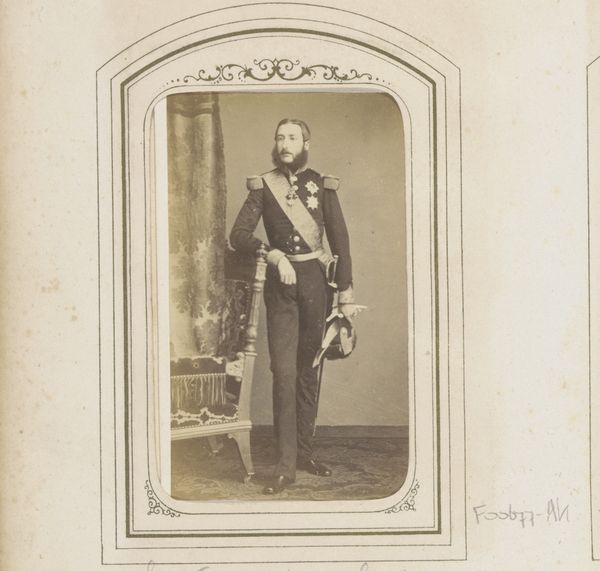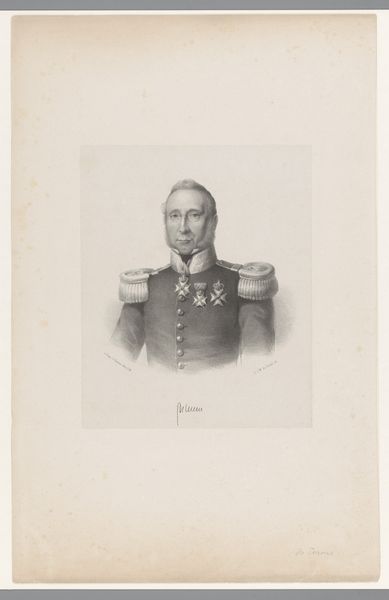
Portret van prins Henrik der Nederlanden, zoon van koning Willem II 1850 - 1879
0:00
0:00
anonymous
Rijksmuseum
photography
#
portrait
#
pencil drawn
#
toned paper
#
light pencil work
#
16_19th-century
#
pencil sketch
#
charcoal drawing
#
photography
#
portrait reference
#
pencil drawing
#
19th century
#
portrait drawing
#
pencil work
Dimensions: height 280 mm, width 225 mm, height 407 mm, width 352 mm
Copyright: Rijks Museum: Open Domain
Curator: This is a photographic portrait of Prince Hendrik of the Netherlands, son of King Willem II, dating from somewhere between 1850 and 1879. Editor: It has this faded, almost sepia dreaminess about it. I'm immediately struck by its delicate, ephemeral feel, as if I might brush it and the whole image could float away like dust. Curator: The photograph, made sometime in the mid-19th century, had significant implications for portraiture at the time, impacting traditional art markets and accessibility to likeness. The sitter, Prince Hendrik, appears posed and presented with a degree of carefully-constructed dignity. Editor: The framing itself is striking - that almost severe oval, it constrains the subject, almost pinning him like a specimen. There's such a controlled atmosphere, and it makes me wonder, what was going on in the Prince’s mind behind that rigid formality? Curator: Considering the photographic processes and constraints of the period, one could analyze it through the lens of industrial methods. What kind of impact did such visual recording methods have on the wider distribution and perception of aristocratic identity? What's more, it provides access to a face and, arguably, a controlled persona that had been confined largely to paintings created for elite display. Editor: I like that tension, between the private human and the very public persona, which of course were inextricably linked for someone of the Prince's station. His rather splendid moustache fights valiantly against the very sternum expression and heavily buttoned tunic. A quiet rebellion, perhaps? Curator: The craftsmanship here speaks volumes, if one accounts for the way in which mass media has begun to mediate individual likeness and identity. To be rendered visible to more and more individuals by way of these increasingly distributed images, photography provided avenues to establish one's mark within social and historical landscapes. Editor: Looking closely, the details that would’ve conveyed the Prince's rank and position - the embellishments, his epaulets - now appear wonderfully softened with time and create this hauntingly lovely sense of distance. A ghost of aristocracy, fading into sepia. Curator: It certainly prompts reflections on how we archive and preserve visages of the powerful figures throughout our past. Editor: Yes. A compelling artifact of then, made anew through time.
Comments
No comments
Be the first to comment and join the conversation on the ultimate creative platform.
